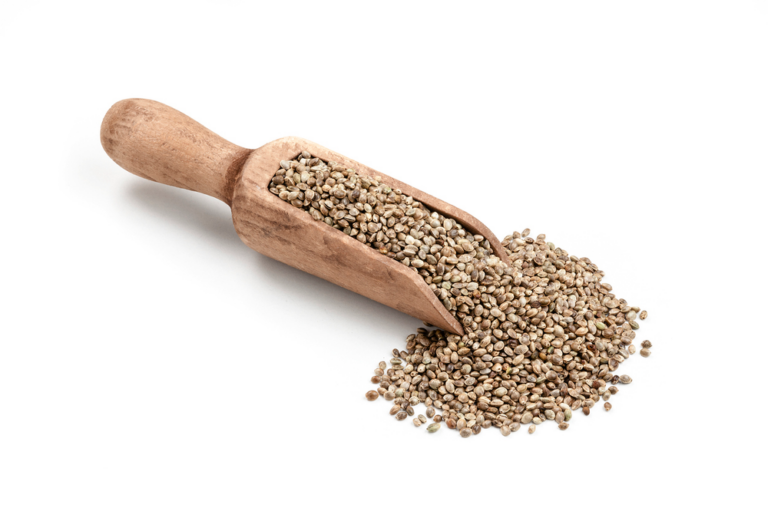TAG has been watching the rapid emergence of the cannabis industry in the U.S. at the State level, and in Canada and other parts of the world at the federal level. There are vast sums of money being invested in the industry with much of it focused on the use of cannabis in food and beverages, and thus the use of cannabis has become much more relevant to the food industry.
Just before the holidays, the Agriculture Improvement Act of 2018 (commonly known as the Farm Bill) was signed into law. With that passage came the removal of hemp from the Controlled Substances Act, which means that it will no longer be an illegal substance under federal law.
But – and it’s a big but – Congress explicitly preserved FDA’s authority to regulate products containing cannabis and its derivatives under the FD&C and Public Health Service acts. Thus, it is still illegal to introduce food containing added CBD or THC into interstate commerce, or to market CBD or THC products as or in dietary supplements, even if the substances are hemp-derived.
But (and it’s another pretty big one), foods containing hemp seed and hemp seed-derived ingredients can be, and currently are, marketed in the U.S. In fact, on the same day the Act was signed, December 20, FDA recognized three hemp-related ingredients as GRAS under their intended use: hulled hemp seed (GRN765), hemp seed protein powder (GRN771), and hemp seed oil (GRN778), as submitted by Fresh Hemp Foods, Ltd.
So what is the distinction?
- Hemp is defined as cannabis (Cannabis sativa L.), and derivatives of cannabis with extremely low (less than 0.3 percent on a dry weight basis) concentrations of the psychoactive compound delta-9-tetrahydrocannabinol (THC).
- Hemp seeds are the seeds of the hemp plant, Cannabis sativa. Although hemp is from the same species as cannabis (marijuana), the seeds themselves do not naturally contain tetrahydrocannabinol (THC), the main psychoactive ingredient in cannabis.
Thus, the GRAS notice states that the recognized hemp seed-derived ingredients contain only trace amounts of THC and CBD (which the seeds may pick up during harvesting and processing from contact with other parts of the plant), and consumption of these ingredients cannot make a person “high.” The GRAS conclusions can apply to ingredients from other companies if they are manufactured in a way that is consistent with the notices; meet the listed specifications and intended uses; and are declared by name on the ingredient list. And those products can be legally marketed in human foods for these uses without food additive approval, provided they comply with all other requirements and do not make disease-treatment claims.
Reiterating FDA’s position on cannabis use in food, though, the GRAS announcement specifically states that “These GRAS conclusions do not affect the FDA’s position on the addition of CBD and THC to food.” As noted in a statement from FDA Commissioner Scott Gottlieb, M.D., also published on December 20, FDA intends to “closely scrutinize products that could pose risks to consumers.” And it will take enforcement action needed to protect public health against companies illegally selling cannabis and cannabis-derived products that can put consumers at risk and are being marketed in violation of the FDA’s authorities – particularly those related to drug or therapeutic claims about cannabis products not approved by the FDA.
However, Gottlieb also stated that the agency is working to “better define our public obligations” related to cannabis and its derived substances, and noted that there are pathways to lawfully introduce these products into interstate commerce. Additionally, FDA is working to make these pathways more efficient for both therapeutic claims (such as the June 2018 approval of the CBD-containing drug Epidiolex for certain epilepsy-related seizures) and for consideration of cannabis-derived compound use in a food or dietary supplement.
Although these products are generally prohibited from being introduced in interstate commerce, FDA’s authority to regulate products containing cannabis and its derivatives enables it to allow its use in a food or dietary supplement, and the agency is “taking new steps to evaluate whether we should pursue such a process,” according to Gottlieb’s statement. As a part of that, FDA plans to hold a public meeting “in the near future” to gather input relevant to its regulatory statute for existing products; the lawful pathways by which products containing cannabis or cannabis-derived compounds can be marketed; and how FDA can make these legal pathways more predictable and efficient.
From all this, I see a positive future for continued legalization of cannabis in the U.S., particularly in Gottlieb’s ending statements that FDA recognizes the public interest and potential opportunities of cannabis products, and it “is committed to pursuing an efficient regulatory framework for allowing product developers that meet the requirements under our authorities to lawfully market these types of products.”
I don’t see that future as moving at a particularly fast pace, as that is not the way the government moves in general, but there has been significant movement over the last year, and I would expect that to continue.
If you are watching this space and wondering if there are opportunities for you to get involved in manufacturing foods or beverages containing cannabis, we are here to help you. The regulations around the use of cannabis at the U.S. state level and in Canada are very different from those for foods. We created a new part of TAG called HashTAG and you can learn more about it at www.hashtag.global. So if you are wondering about this opportunity, give us a call.
About The Acheson Group (TAG) Led by Former FDA Associate Commissioner for Foods Dr. David Acheson, TAG is a food safety consulting group that provides guidance and expertise worldwide for companies throughout the food supply chain. With in-depth industry knowledge combined with real-world experience, TAG’s team of food safety experts help companies more effectively mitigate risk, improve operational efficiencies, and ensure regulatory and standards compliance. www.AchesonGroup.com





